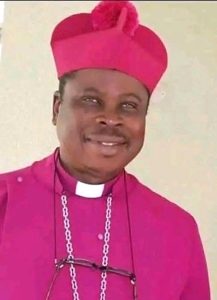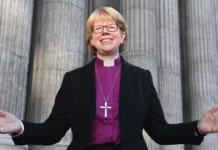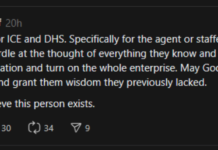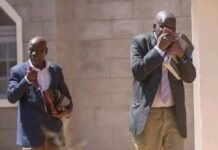Decentralizing Nigeria’s police force and adopting a state and community policing model, along with tackling corruption and poverty are the best ways to reduce crime, Nigerian church leaders have claimed. The concerns over Nigeria’s failing security come three weeks after an archbishop went missing and is feared kidnapped.
As of 28 Dec 2024 there is no word on the fate of the Most Rev. Godwin Okpala, the retired Archbishop of the Niger Province and Bishop of Nnewi. On 7 Dec 2024 the Rt. Rev. Ndubuisi Obi, Bishop of Nnewi, issued a prayer alert after the archbishop and his driver disappeared. The bishop wrote:
“With a deeply burdened heart, we write to inform you of the distressing news that our revered Father in God, the Most Rev. Prof. Godwin Okpala (Retired Archbishop of the Niger Province and Bishop of Nnewi), has been missing since yesterday morning.”
“He embarked on a journey to Umuchu accompanied by his driver but, unfortunately, never arrived at his destination. Since then, there has been no communication, and neither he, his driver, nor the vehicle have been located.
“We earnestly plead for your fervent prayers for their safety and swift return. The relevant authorities have been contacted, and we are hopeful and trusting in God’s divine intervention for a positive resolution.”
“Please, join us in prayer of intercession, trusting in the Lord, whose watchful eyes never slumber, to bring our beloved Father in God, and his driver back to us safely.”
There have been no public statements from the Church of Nigeria or the archbishop’s family since his disappearance, leading to speculation that negotiations are taking place for a ransom to be paid to obtain the archbishop and his driver’s safe release.
On 28 Dec 2024 the Bishop of Akoko in Babajide Bada reported that bandits had kidnapped a priest, his wife and their children. The bishop reported a ransom demand had been given to the family, asking N75million for their safe return. The Saturday Telegraph reported the priest and his family were kidnapped along Ise Akoko-Iboropa road in Akoko North-East Local Government Area of Ondo State on Sunday 22 December between 4 pm and 5:30 pm. Witnesses report the priest’s car was stopped and the occupants taken into the bush by bandits.
Kidnapping in Southern Nigeria has evolved into a significant security challenge, rooted in socio-economic, political, and criminal dynamics. Kidnapping in Southern Nigeria initially emerged in the 1990s as a tactic by Niger Delta militants to demand government action against environmental degradation caused by oil extraction. Early victims were primarily expatriate oil workers, and the practice was politically motivated, with demands for resource control and compensation for affected communities.
Over time, criminal elements turned it from a political tool into a widespread form of extortion and terrorism, targeting both wealthy individuals and ordinary citizens for ransom.
The Church of Nigeria has warned that the prevalence of kidnapping has deterred investment and tourism in affected regions, significantly impacting local economies. Families often pay large ransoms, draining financial resources. It has also led to widespread fear and mistrust that has eroded community cohesion.
While initially concentrated in the Niger Delta region, kidnapping has spread across Nigeria, with various actors employing it for economic gain or political leverage. The government’s inconsistent policies and weak security infrastructure have allowed the practice to thrive church leaders tell Anglican.Ink.
Anglican leaders in Nigeria have urged the government to reform policing methods and introduce community policing to combat crime. The centralized criminal justice system in Nigeria, church leaders argue, makes too little provision for community participation in crime prevention and management.
In his 2024 synod address the Bishop of Calabar Diocese, the Rt. Rev. Nneoye Onen Egbe said there is a need to define the rules of engagement for the states, otherwise, there will be anarchy.
Corruption, poverty and over centralization of policing meant the current situation was unlikely to change. “Nigeria is a place where the law exists for the poor and those outside the corridors of power, while the powers that be live and operate outside the laws. Fears have been expressed about the possible hijack of the force by state governors and their cohorts.”
“This is expected because we do not have God-fearing leaders yet, but self-seeking, power-hungry leaders whose only goal is to swallow up everything that can help them perpetuate themselves in power,” the bishop said, adding that devolving authority and responsibility to state and local police forces would curb communal clashes as well as cut down on gangsterism.”
Speaking to reporters after the February 2024 meeting of the Church of Nigeria standing committee, the Primate of Nigeria the Most Rev. Henry Ndukuba urged the federal government to reconsider the idea of state and community policing to tackle the growing insecurity in Nigeria.




[…] Source link […]